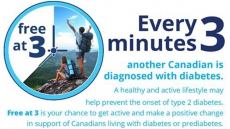Nearly forty per cent (38%) of British Columbians are not taking their prescription medications properly according to a new survey conducted by Insights West on behalf of London Drugs. This includes one in four (25%) who admit they take less than prescribed or don’t fill prescriptions given to them, one in five (20%) who say they stop taking medications before advised, and 19% who admit they make adjustments to prescription dosage, size, or frequency without consulting a healthcare professional.
“The significant number of Canadians who reportedly do not take their medications accurately is not limited to any particular age or gender demographic—it is rampant across the board, suggesting that awareness and education needs to be improved,” says Steve Mossop, President of Insights West.
“Either intentional or unwitting failure to take medications as prescribed decreases the effectiveness of treatment and endangers patient health,” says Michael Athanassakis, a Pharmacist at London Drugs. “There are several factors that contribute to the improper use of medications, including forgetfulness, inconvenience, and a lack of understanding about how to take medications properly.”
According to the poll, close to a quarter (21%) of British Columbians attribute their nonadherence to forgetfulness, saying they have had trouble remembering when or if they have taken a medication. One in ten (10%) say they are unsure why they have been prescribed certain medications, and a further eight percent say they feel overwhelmed by the complexity of their medication regimen.
“It’s not uncommon for some patients – especially those who have chronic health conditions – to be prescribed multiple medications at a time. These drugs can interact with each other in unpleasant or even dangerous ways which makes it imperative that patients understand how to take them properly,” says Athanassakis.
Pharmacists are trained to identify a wide range of medication issues and ensure the safe and effective use of prescriptions. While awareness about their expertise in this area is high, the poll revealed that British Columbians aren’t getting — or asking for — as much help as they could be from pharmacists. For example, the vast majority (84%) are aware that pharmacists offer counselling on the safe use of medications, but only three in ten (31%) say they use this service. Eight in ten (84%) say they are aware pharmacists can review current prescription medications to help minimize drug interactions and ensure maximum effectiveness, yet only about one in three (36%) say they have consulted a pharmacist on this topic. Just under half (46%) report asking pharmacists for advice for managing side effects and drug interactions.
“Medication reviews and pharmacist consultations are safeguards designed to make sure people take medications correctly. They also help patients understand the purpose and potential downsides of all meds to help them avoid serious drug side-effects, drug interactions, and even overdoses,” says Athanassakis. “Sometimes we determine that a patient’s medications may not be working together ideally, or they might even be working against each other slightly, or they could be redundant. Each person experiences different interactions and side-effects, which makes an individualized consultation even more important.”
Athanassakis says medication reviews have become even more important in recent months with the legalization of cannabis as more may consider recreational use. Those who suffer from numerous chronic health conditions and have multiple prescriptions could be at a greater risk from drug interactions when using cannabis.
“Cannabis can impact the way certain drugs are metabolized, and no scientifically defined dosage of cannabis has been established for any medical condition. So, it’s important to get expert advice to determine if it is right for you and determine the most suitable amount, strain, and method of use,” he says.
London Drugs now has Cannabis Educators at pharmacies throughout BC. These specially trained pharmacists are available to help people living with a host of symptoms and conditions. During consultations or medication reviews, these pharmacists can provide advice about the safe and effective use of medical cannabis, especially for those taking other prescription medications.
Four in ten (41%) British Columbians polled said they are aware that pharmacists can provide advice for safe and effective use of medical cannabis. Just six percent said they have consulted pharmacists on this topic.
The vast majority (89%) of respondents agree that it is important to follow prescription instructions exactly, including 65 percent who strongly agree.





